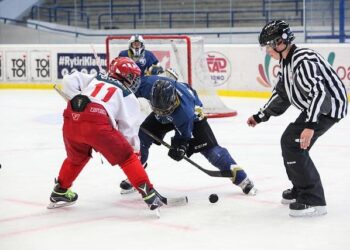HELSINKI – The President of Finland has characterized Russian President Vladimir Putin’s recent military actions as one of the most significant strategic and tactical errors in recent history. Speaking in an exclusive interview, the Finnish leader underscored how Putin’s decisions have altered the security landscape of Europe, with far-reaching consequences for regional stability. The comments come amid ongoing tensions between Russia and Western nations, drawing renewed international attention to the unfolding conflict and its broader implications.
President of Finland Criticizes Putin’s Military Strategy as Major Error
In a recent statement that has reverberated across international political circles, the President of Finland sharply critiqued Vladimir Putin’s military maneuvers, labeling them as a “major strategic and tactical blunder.” According to the Finnish leader, the miscalculations have not only strained Russia’s military resources but also stirred unforeseen geopolitical consequences that could reshape the security landscape of Europe. This assertion highlights a growing skepticism among Western leaders regarding the long-term sustainability and logic behind Russia’s current military engagements.
Key points outlined by the Finnish President include:
- The underestimation of resistance from Ukrainian forces and international allies
- The unexpected logistical challenges faced by Russian troops
- The detrimental impact on Russia’s global diplomatic standing
- The potential for prolonged conflict weakening regional stability
| Aspect | Putin’s Decision | Impact |
|---|---|---|
| Strategic Plan | Underestimated opposition resilience | Extended conflict duration |
| Resource Allocation | Poor logistical preparation | Supply shortages and morale issues |
| International Reaction | Dismissal of diplomatic fallout | Increased sanctions and isolation |
Analysis of Tactical Failures Impacting Russia’s Recent Military Campaigns
Russia’s recent military operations have been significantly hampered by a series of critical tactical errors that have altered the trajectory of the campaign. These missteps include underestimating enemy resilience, poor logistical planning, and overextension of forces across multiple fronts. Analysts emphasize that such flaws not only stalled advances but also exposed Russian units to counter-offensives, resulting in substantial losses of personnel and equipment. The failure to secure supply lines allowed opposing forces to disrupt reinforcement efforts, leading to a breakdown in command cohesion and operational momentum.
Key factors contributing to these setbacks can be summarized as:
- Inadequate intelligence gathering: Impeding informed strategic decisions and allowing adversaries to anticipate movements.
- Rigid command structures: Limiting adaptability in rapidly changing battlefield conditions.
- Failure to integrate modern warfare technology effectively: Resulting in missed opportunities for tactical advantage.
| Tactical Aspect | Impact | Outcome |
|---|---|---|
| Logistics | Supply disruptions | Reduced frontline effectiveness |
| Command & Control | Poor communication | Delayed response times |
| Intelligence | Faulty data | Misguided offensive operations |
Expert Recommendations for Western Response to Russian Strategic Missteps
Western analysts emphasize the necessity of capitalizing on the strategic errors to contain Russia’s influence and pressure Moscow into reevaluating its aggressive posture. Coordination among NATO members is now more crucial than ever, focusing on unified deterrence efforts including intelligence sharing, enhanced military readiness, and advanced cyber defense tactics. Experts recommend bolstering support to Eastern European allies by increasing joint military exercises and deploying additional defensive assets to key border regions.
Furthermore, non-military measures are highlighted as essential in undermining Russia’s long-term strategic goals. These include:
- Strengthening economic sanctions targeting key industries and oligarch networks.
- Expanding diplomatic isolation in both bilateral and multilateral forums.
- Promoting information campaigns to counteract disinformation within Russia and affected regions.
| Response Area | Recommended Action | Expected Impact |
|---|---|---|
| Military Coordination | Increase joint exercises & deployments | Enhanced deterrence and rapid response |
| Economic Sanctions | Target energy and finance sectors | Weaken strategic capabilities |
| Information Warfare | Amplify truthful narratives | Reduce effectiveness of propaganda |
Insights and Conclusions
As the conflict continues to unfold, the remarks from Finland’s president underscore the profound implications of recent military decisions in the region. Analysts and observers alike will be watching closely to see how these strategic missteps influence the broader geopolitical landscape moving forward. For now, the president’s assessment adds a significant voice to the ongoing debate over the course and consequences of the conflict.
















